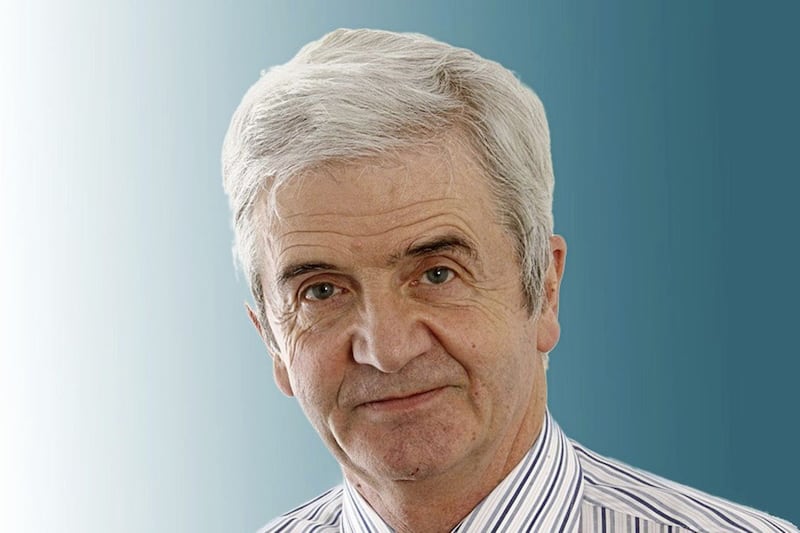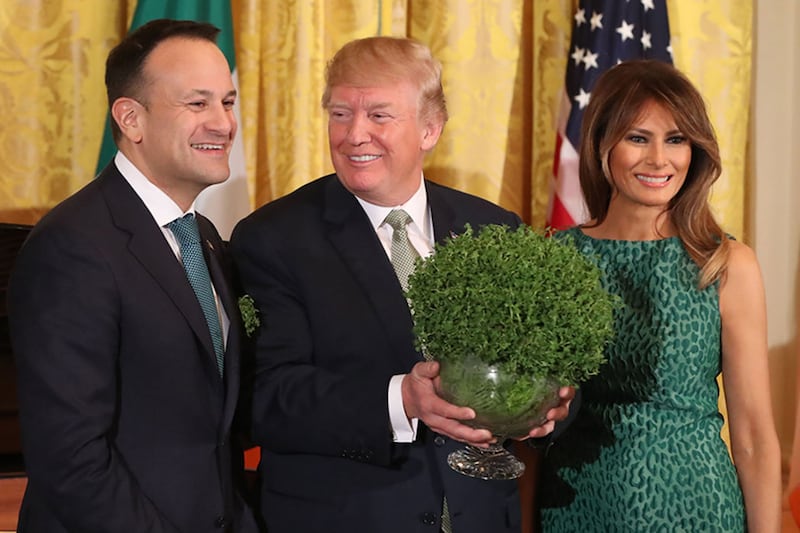After 850 years of anti-British war, rebellion, insurrection, insubordination and general belligerence, Ireland's economic future hinges significantly on the outcome of a sham fight between two upper class Englishmen.
In the blue corner is Jeremy Richard Streynsham Hunt, a distant relative of the Queen. An ancestor, Streynsham Master, helped found the East India Company, which paved the way for the British Empire in Asia.
In the even more blue corner is Alexander Boris de Pfeffel Johnson, who can trace his ancestry to George II and a range of European aristocrats.
Both men were privately educated (Charterhouse and Eton), both went to Oxford and both come from what might reasonably be described as privileged backgrounds.
So how have we arrived at the position where, a bit like the Battle of the Boyne, Ireland's future depends on two English would-be royals? The answer lies in Ireland's historical inability to understand events in England and consequently doing the wrong thing. You might well disagree, but there is no shortage of examples.
We could include Hugh O'Neill's surrender to Elizabeth I in 1603 (she had died six days earlier) and Irish support for the royalist Charles I, who lost the civil war, prompting Cromwell to visit us. Fast forward to de Valera's economic war with Britain ("Burn everything English but their coal") and, in more recent times the Irish reaction to Brexit.
While Brexit was Britain's decision, Ireland could have done more to help avoid it and now, to alleviate it. The problem is best exemplified by the Dublin media, which argues that Brexit is driven by "the British ruling class". This is plainly wrong.
The City, big business and the banks all oppose Brexit. During the Brexit referendum, David Cameron, most of his cabinet, many in the Labour leadership and most senior civil servants all voted Remain. Jeremy Hunt campaigned to remain and Boris Johnson wrote in 1999 that he was "a pro-European of the most violent.... and incurable disposition".
Both are now supporting public opinion in promoting Brexit. The British polite elite is following, not leading. During the 1975 EU referendum on British membership of the then EEC, only two major publications backed the No side: the communist Morning Star and the Tory Spectator magazine.
The "Little Englander" explanation for Brexit is not only inaccurate, it has led Ireland in the wrong direction. Enda Kenny opposed David Cameron's efforts to negotiate a different relationship with the EU in 2016. Kenny failed to recognise Cameron's efforts to avoid Brexit amid the growing anti-austerity mood in Britain.
When Brexit came, Leo Varadkar rallied Ireland around the idea of a backstop which, in the event of no agreement between the EU and the UK, would hand the north's economic management, not to Dublin but to Brussels. In doing so, he helped to get rid of Theresa May, who was working for a soft Brexit.
Yes, Brexit was Britain's decision, but Ireland should have read it accurately and acted differently. Varadkar might have argued for a special Ireland-Britain economic zone with trading links to the EU, or a special status for the north within both the EU and the UK (a sort of free port status, where normal taxes and tariffs do not apply).
It is now too late for him to do that, but it is not too late for Sinn Féin to move out of his slipstream and propose a British-Irish conference to address the issue, which would include them and the DUP.
Failing that, we are stuck with a Tory leadership contest between the sublime and the ridiculous.
Hunt, the current foreign secretary, once described his wife as Japanese, even though she comes from Xian, Central China. Former foreign secretary Johnson wrote last year that Muslim women wearing burqas looked like bank robbers.
Our future is in one of their hands. We could have done more to avoid our fate. It may have made no difference, but, it offered a wonderful opportunity to learn from our past mistakes.










